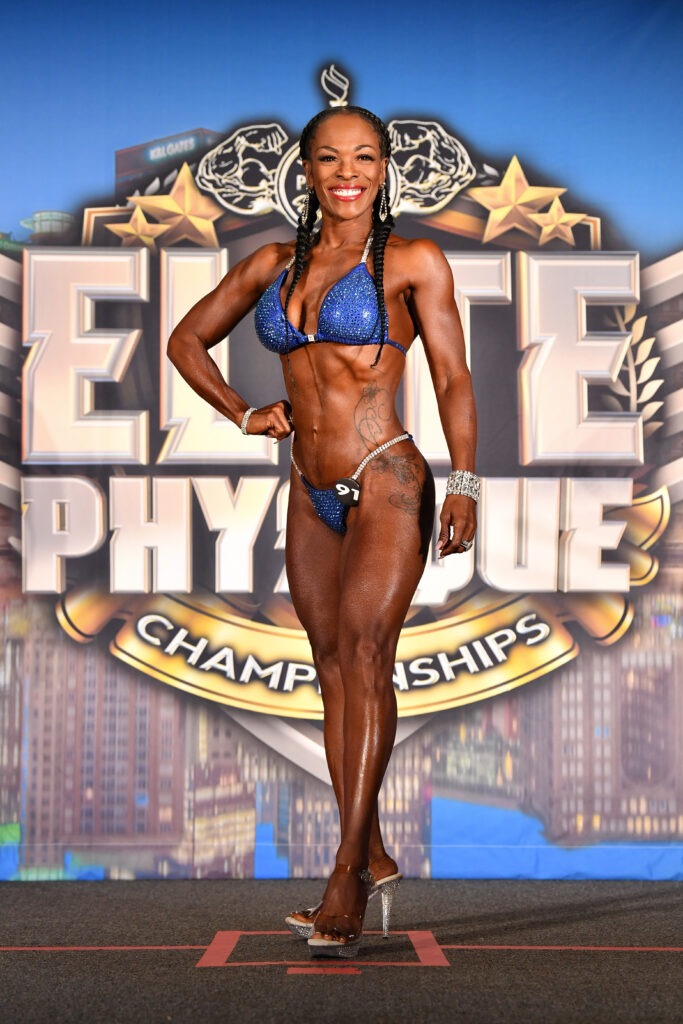Any man can gain insight from attending to the perspective of women as they relate the components that would cause them to describe a woman as beautiful. What better way to deepen men’s understanding of women than to gain a view into the intricacies of how they view their best selves, their bodies, and their health? Additionally, it may allow women individually and collectively to reiterate and reassess their physical and mental health as it relates to their body image.
In the best case, a woman’s amplified voice can influence and inspire another woman to feel like they can reclaim their untainted standard of beauty and make achieving it accessible and attainable. It’s time to check in with women on how they would describe their beauty and their relationship with exercise and how it has been affected by society’s idea of beauty.
Valerie Starks-Hutton, a mother and entrepreneur, how she describes what beauty is to her and her journey from a diagnosis of fibromyalgia to an award-winning physique competitor. She has achieved the body she wants through the channels of fitness and nutrition. She believes being curvy and healthy benefits her mental health and sets an excellent example for other women.
Everyone has a unique turning point when starting their journey in fitness. Valerie was in her thirties when she received news that she had fibromyalgia. This long-lasting disorder causes pain and tenderness throughout the body, fatigue, and trouble sleeping. Scientists do not fully understand what causes it, but people with the condition have a heightened sensitivity to pain.
Valerie looked around the room in her hospital support group and realized she was the youngest person there, and so began her journey in the gym. After discovering how discontent she was with so many of life’s circumstances that were out of control, she turned to the things she could control, such as her weight, body strength and health, and mental health.
At the local gym, Valerie found a community of like-minded people, remained determined to continue improving, and felt challenged by the classes and training. She eventually became so ingratiated in the lifestyle that out of the desire to be an example to other women, she lost nearly 20 pounds and entered a physique competition at the age of 56. Valerie took first place in the 40 and up group and second place in the 35 and up age group.
For these reasons, Garrett desired to sit with Valerie, a single mother who has battled health conditions and defied age through her commitment to maintaining her health and mental wellness through physical fitness and an active lifestyle.

How does society’s idea of beauty impact women’s mental health? Current studies suggest that Black women’s body self-image is influenced by their perceptions of men’s views of the ideal body based on how Black women are featured in common media outlets (Awad, et al, 2016).
There could be pressure for women to look at social media and want to look like some of the women who are featured there. Valerie says, “Social media pressures women to look a certain way. I feel like there’s pressure for women to look at social media but to even get started with fitness, they’re unsure where to begin in pursuit of that idealized image.”
When asked, “How do you define the term body image?” Valerie described body image as “what other people think you should look like. You can be very curvy and still be sexy. Whether you’re a size six or 12, we all have room for improvement.”
Studies often indicate that the content of family messages surrounding body image and beauty includes the idea that the perception of others is essential and influences one’s ability to achieve and be well-received. The implications of this may lead to a hyperawareness of body image that could have damaging effects depending on a woman’s surroundings.
When asked how exercise impacted her mental health, Valerie replied, “Community is a big part of mental wellness — like-minded people around you with the same goals and vision.” Finding the proper community support may sometimes be complex and scary. Still, consistency along the wellness journey will lead to finding a tribe that will ease the mind and that will empower any woman showing up for themselves who, in Valerie’s words, says to themselves, “I’m going to work on my body in the process of building the woman I am.”
Exercise and movement add a layer of confidence and put a strong barrier between a woman’s body image preferences and anyone else’s. This idea led Garrett to ask if Valerie has ever felt pressured by external sources to conform to society’s body image preferences. Valerie replied, “No, because staying on top of my workout has always been important. I’ve never wanted to look like someone else.” She has found her own set of reasons to exercise that are not tied to society’s idea of beauty. She said, “I just love the beach, summertime, and the Caribbean, and I’m going to keep this body bikini ready for that.”
When asked, “What components would cause you to describe a woman as beautiful?” Valerie replied, “Beauty has much more to do with who you are on the inside versus who you are on the outside.” She explained that the outside piece is just an add-on for someone with a beautiful inside, full of life and spirit, who is vibrant and embraces who they are as a woman.
“After those bodybuilding contests, people started asking me questions about my body And I wanted to share with women that, ‘hey, look, I have fibromyalgia, and I did this. Don’t ever feel like you can’t do something that you put your mind to, regardless of what the situation is!’” ●
Sources
Awad, Germaine H., et al, “Beauty and Body Image Concerns Among African American College Women,” PubMed, November 12, 2014.


